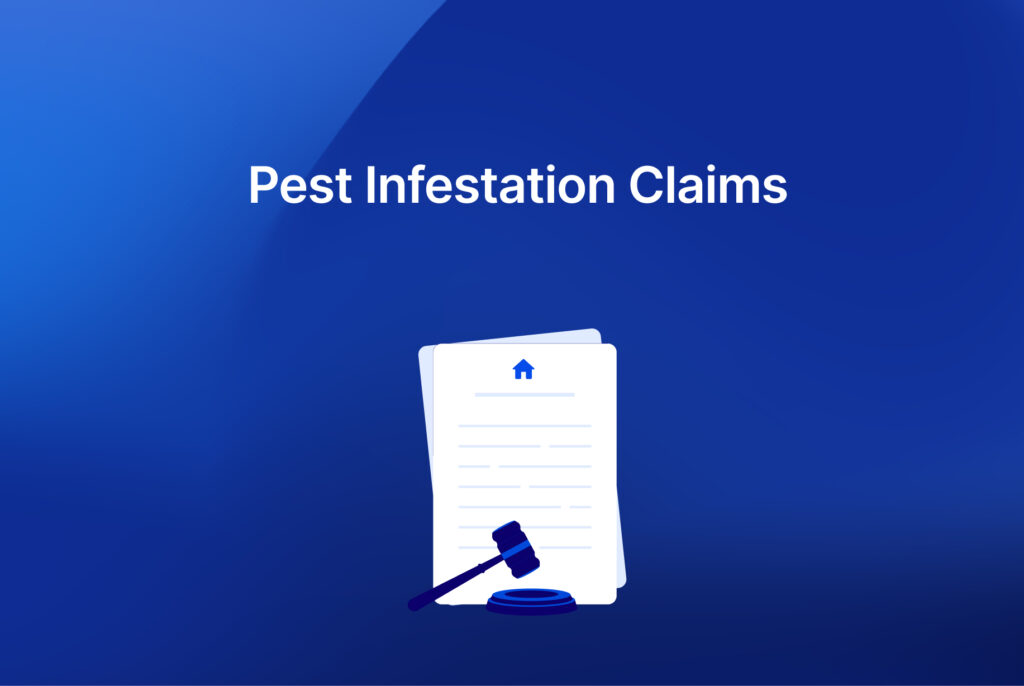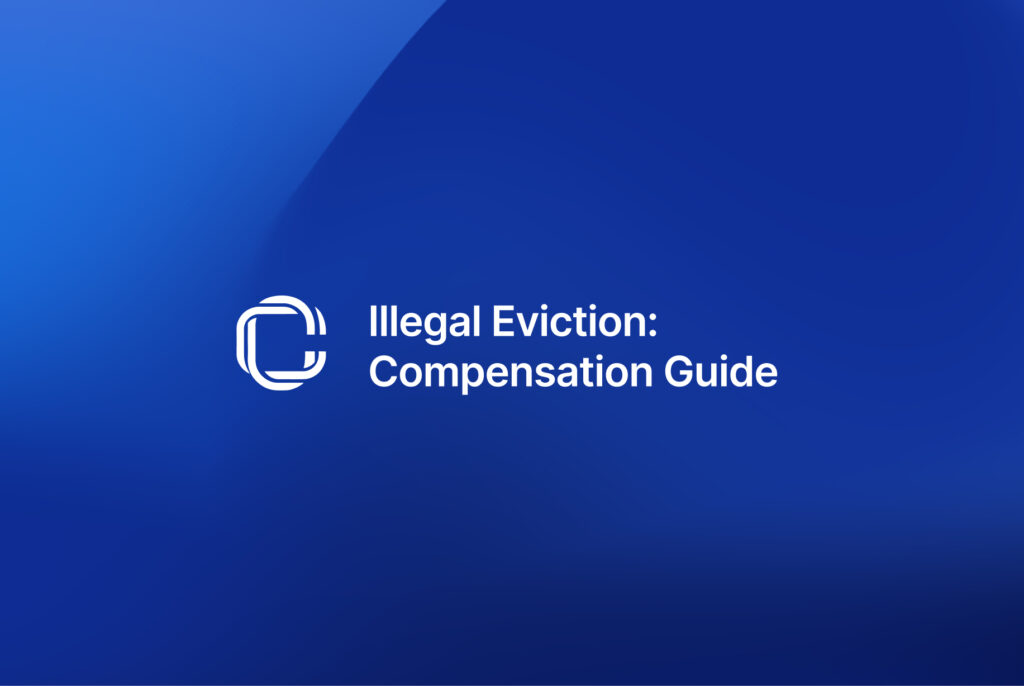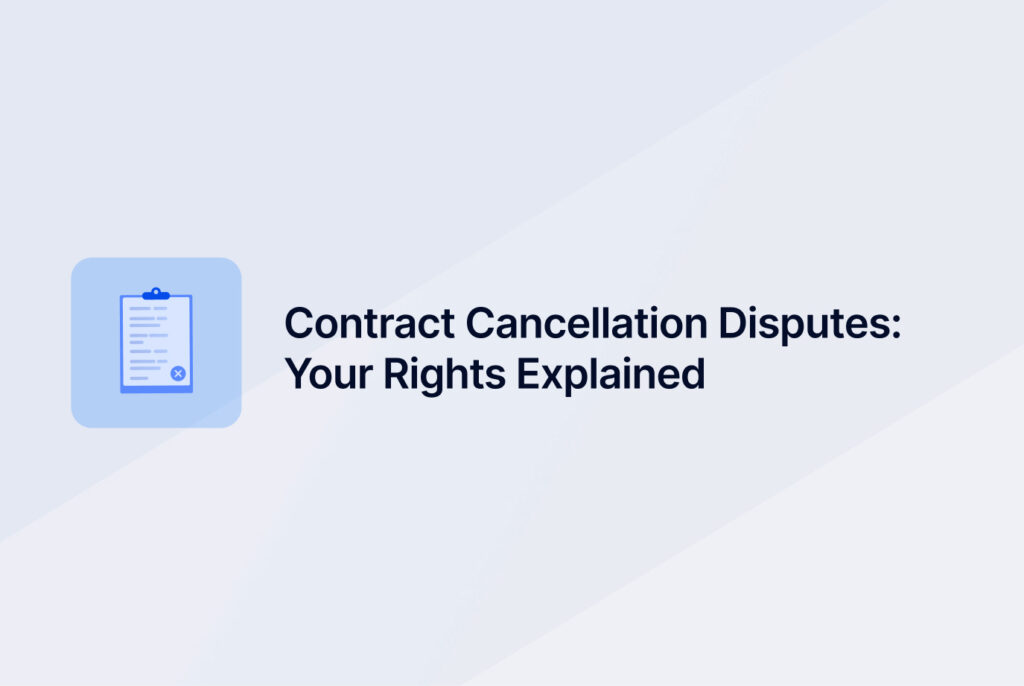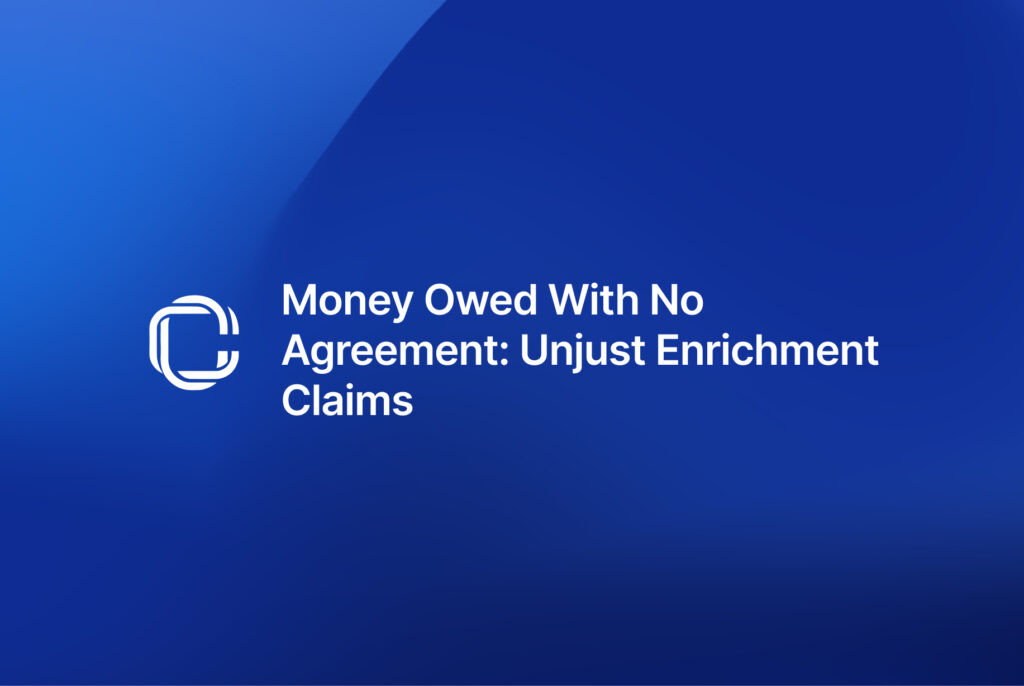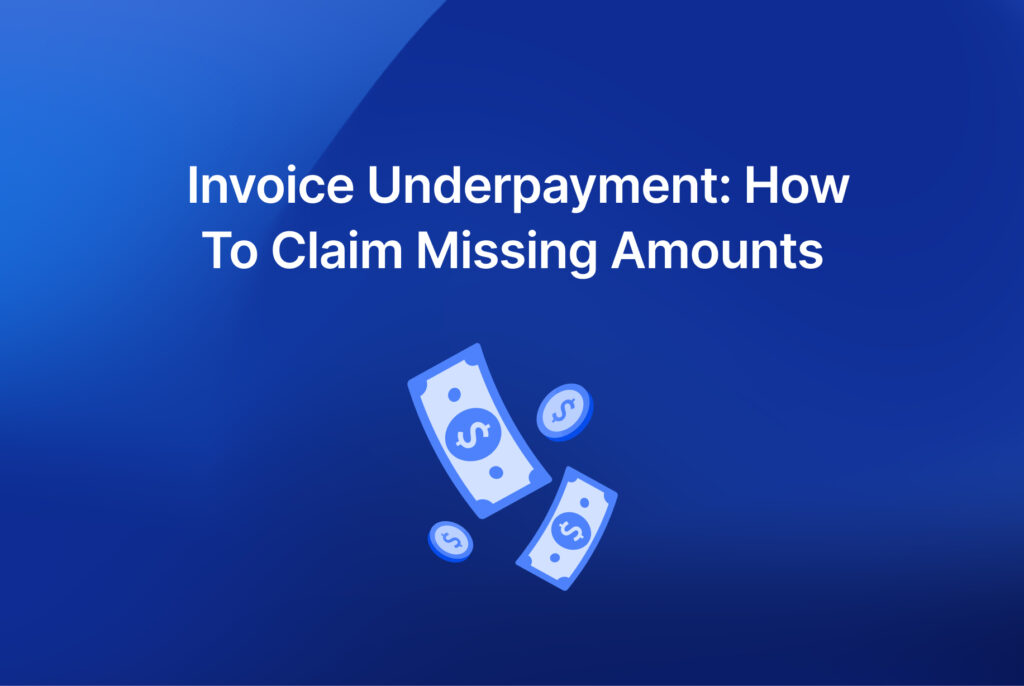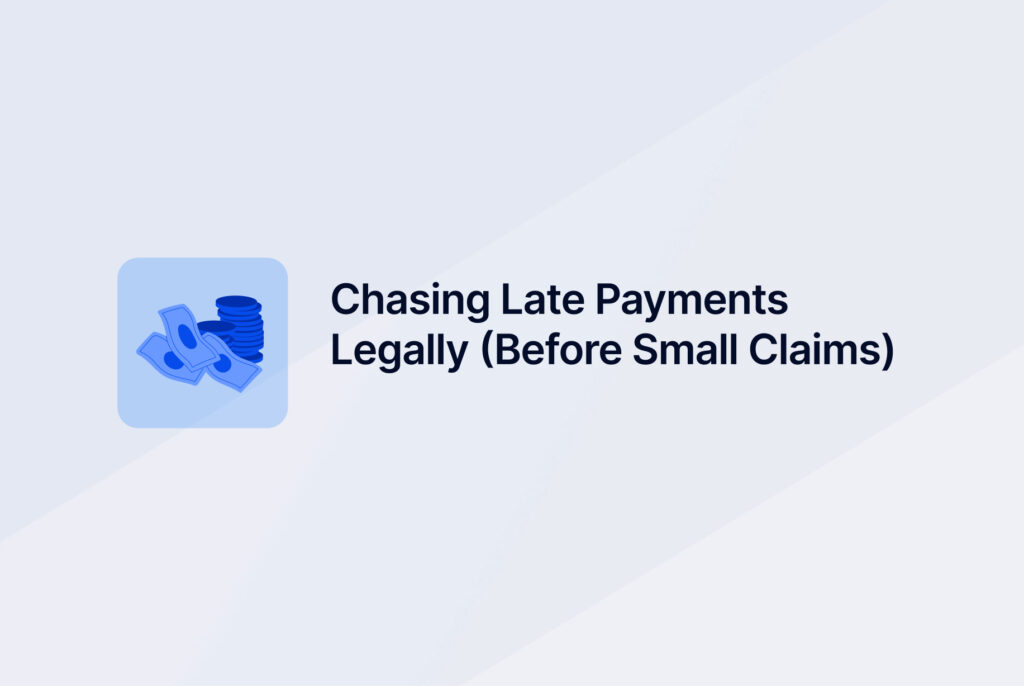Discover when UK businesses can charge a cancellation fee, when customers can refuse, and how CaseCraft.ai helps win small claims fast.
Running a business in 2025 means balancing your bottom line against increasingly robust consumer rights. Fees for late cancellations or no‑shows can help recoup losses when a customer pulls out at the last minute, but they also trigger disputes if they are not handled properly. Court backlogs are growing, county court claims rose sharply in early 2025, and a small‑claims dispute typically takes nearly a year to reach a hearing. Many organisations, therefore, want faster, more customer‑friendly ways to resolve disagreements. That is where CaseCraft.AI, a small‑claims platform based in London, comes in. The service uses artificial intelligence to guide people and businesses through small claims, focusing on early settlement, preparing paperwork and tracking deadlines.
In this article, we explore when you can charge a cancellation fee, when a fee might be refused and how tools like CaseCraft.AI can help you enforce or challenge such charges within the small‑claims limit.
What Is a Contract Cancellation Fee?
A cancellation fee is a charge levied when a customer backs out of a booking or service before it is due to take place. You will see them in sectors such as hospitality, events, transport, fitness, professional services and subscriptions. The idea is not to punish the customer but to reflect the genuine cost incurred by your business when a slot goes unused or stock must be repurposed. In law, this fee must be reasonable and proportionate; you cannot impose a punitive penalty simply to deter cancellations. In fact, government guidance makes clear that a contract term is only enforceable if it is fair. Businesses may keep deposits or charge a fee only to cover their actual losses. Non‑refundable deposits should only represent a small percentage of the total price, and any charge must be a genuine estimate of your direct loss. The onus is on the business to mitigate those losses, for example, by reselling the slot or product.
When calculating a fair cancellation fee, you should identify the costs directly caused by the customer’s booking. Genuine losses might include set‑up costs (materials already purchased, supplier payments and reserved equipment) and the time spent preparing contracts or itineraries. If you turned away other work because the customer occupied a slot, you can claim the profit you reasonably expected, but only for the period during which you could not rebook. In some industries, a set percentage of the contract price is used as a cancellation fee; this is acceptable provided it reflects actual loss rather than serving as a deterrent.
What you cannot do is arbitrarily set a large number. Charging a £1,000 fee for a £600 contract is likely to be deemed unfair and unenforceable. Because fairness is central to consumer protection law, any ambiguity tends to be interpreted in favour of the customer. Clear and transparent terms are therefore essential for businesses.
Can My Business Charge a Cancellation Fee?
Legal Principles
UK law sets strict parameters around cancellation fees. The Consumer Rights Act 2015 and related unfair terms legislation require your fee to be transparent, proportionate and agreed before the contract is formed. Hidden clauses or surprise charges will almost certainly provoke complaints and may be unenforceable. The overarching principle is that a business should not be in a better position than if the contract had been fulfilled. Government guidance reinforces this point: businesses can only keep deposits or charge cancellation fees sufficient to cover their actual losses, and they must take reasonable steps to minimise those losses. Non‑refundable deposits should be modest, and any fee must genuinely reflect costs such as preparation, stock or staffing.
Cooling‑Off Rights
If a customer books a service online, by phone or away from your business premises, they enjoy a statutory cooling‑off period. Under the Consumer Contracts Regulations, they can cancel within 14 days, starting the day after the contract is made, and receive a full refund. This includes services like airport parking, cleaning or legal advice sold at a distance. The cooling‑off period also applies when a consumer signs a contract in their home or another off‑site location if the service costs at least £42. Businesses can keep money only for services actually delivered during the cooling‑off period. Once the 14 days have passed or if the contract was signed at your premises, no automatic cooling‑off right applies; any cancellation fee must then comply with the fair‑terms rules mentioned above.
When Customers Can Refuse to Pay
There are several situations in which a customer may lawfully refuse to pay a cancellation fee. The fee must reflect real loss: if it exceeds actual costs or leaves the business better off, courts will treat it as an unenforceable penalty. The cancellation policy must be clearly explained at the time of booking; hidden terms rarely survive scrutiny. Serious illness, bereavement or other exceptional events may justify waiving a fee, and statutory rights, such as the 14‑day cooling‑off period, override any contractual clause. Finally, businesses must show evidence of their losses; without invoices or booking records, a claim is likely to fail. Consumer advisers urge customers to negotiate where charges seem unfair, and many disputes can be resolved through alternative dispute resolution schemes.
Travel and Flight Disputes
Delayed flights generate many small claims. UK law allows passengers to claim fixed compensation if a flight arrives more than three hours late and the airline is at fault. The compensation amount varies by route but typically ranges from about £220 for short‑haul journeys to £520 for long‑haul flights. Passengers can also obtain a refund instead of travelling when a flight is delayed by five hours or more. These claims must be made to the airline, and if rejected, the passenger can pursue the matter in the small claims court. CaseCraft.ai offers a flight delay tool that guides users through preparing and filing such claims.
Warranty and Product Disputes
Cancellation charges occasionally crop up in product‑warranty contracts. The same fairness rules apply: any fee for cancelling an extended warranty must be clearly disclosed and reflect genuine administrative costs. If a provider keeps an excessive portion of your premium or refuses to refund unused coverage, you can challenge the charge through the small‑claims process, and CaseCraft.ai’s guidance supports such claims.
Small Claims Limits and Timeframes
If negotiation fails, disputes over cancellation fees are usually dealt with by the county court. In England and Wales, the small‑claims track generally handles cases up to £10,000. Larger claims go to the fast track (up to £25,000) or Money Claim Online. The limit was increased in 2013 to improve access to justice, and claimants typically have six years from the date of the breach to file. Courts also consider the complexity and number of parties when allocating cases. Landlord‑tenant disputes sometimes have lower limits, but most consumer cancellation cases will fall within the £10,000 threshold. Civil justice statistics show that most claims are for money and that hearings take around a year to reach trial, which is why early settlement is so valuable. CaseCraft.ai helps users prepare claims correctly, track deadlines and reach a settlement.
CaseCraft.ai and Small‑Claims Disputes
CaseCraft.ai launched in 2025 to make the small‑claims process accessible. Its AI‑driven platform guides users step‑by‑step, encouraging early settlement and generating the letters and court forms needed. The software checks procedures, tracks deadlines and prepares compliant documents so nothing is missed. With UK courts facing long delays, the platform aims to help users file claims efficiently without paying solicitors. Categories include money claims, deposit and refund disputes, housing issues, breach of contract, unpaid loans, business partnership disagreements and travel‑related claims. By simplifying paperwork and offering clear guidance, CaseCraft.ai encourages businesses and consumers to resolve disputes fairly and quickly.
Key Takeaways

Flexible Working in 2025: What Employers Need to Know
The flexible working reforms mean employees can request flexible hours from day one, and employers must consult and give clear reasons if they refuse. Our webinar explains how to update contracts and policies, handle remote or hybrid arrangements and avoid discrimination claims. We also touch on small‑claims scenarios such as unpaid expenses or disputes over remote‑working equipment.
Avoiding Online Sales Pitfalls: Data Protection and Consumer Law Safeguards
Selling online brings obligations. Our webinar covers UK data‑protection requirements, transparency, lawful basis and secure storage, and consumer law essentials such as clear pricing, cancellation and refund policies and compliance with the 14‑day cooling‑off period. We use real examples to show how poorly drafted terms can lead to small‑claims disputes.
Planning Your Exit: Tax and Legal Essentials for Start‑ups for Rise Group
Founders eventually need to plan their exit. This session explores due diligence checklists, intellectual property assignments, employment considerations and how to minimise tax liabilities. Learn how to structure your sale to avoid unexpected claims and when a dispute about earn‑out payments might end up in small claims.
Legal Implications of Breaking a Commercial Lease
Ending a commercial lease early carries risks. Our webinar explains break clauses, notice requirements and liabilities such as dilapidations and rent until a new tenant is found. You’ll learn when a deposit can be withheld, how to negotiate a surrender and when a landlord might legitimately charge a cancellation fee. Real‑life examples illustrate how negotiation and alternative dispute resolution can prevent litigation.
FAQ: Can You Charge a Cancellation Fee in the UK?
Can I refuse to pay a cancellation fee?
Yes, if the fee is unfair, hidden, disproportionate or not backed by evidence. Exceptional circumstances such as illness or bereavement may also justify refusal. Always check your contract and statutory rights, and try negotiating before pursuing legal action.
Can my business charge a cancellation fee after the cooling‑off period?
Yes, provided your cancellation clause is clear, proportionate and reflects your actual losses. You must also demonstrate that you took reasonable steps to mitigate those losses.
What is the small‑claims limit, and how long do I have to file?
The small‑claims track deals with cases up to £10,000. You generally have six years from the date of the breach to bring a claim. For landlord‑tenant disputes, the limit can be £1,000 for repairs and £10,000 for compensation.
Are cancellation fees legal in the UK?
Yes, provided the fee is fair, transparent, and reflects the business’s actual loss (e.g., prep time, materials, a slot you couldn’t resell). Punitive or hidden fees are likely to be unenforceable.




